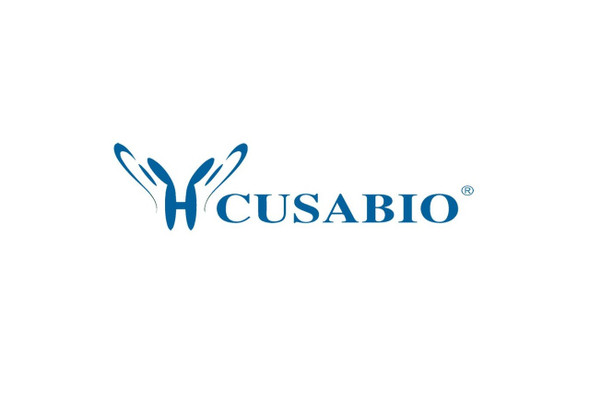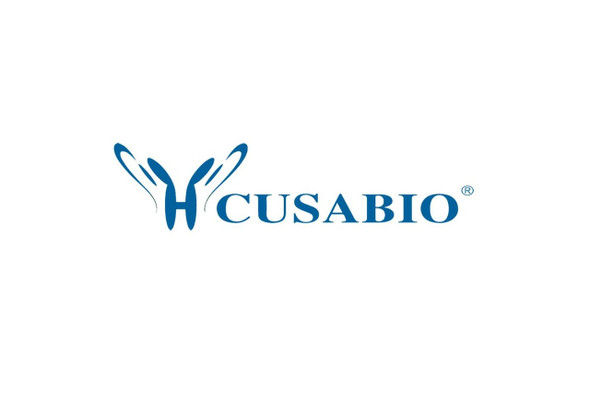Cusabio Human Recombinants
Recombinant Human Atrial natriuretic peptide receptor 1 (NPR1), partial | CSB-YP016023HU
- SKU:
- CSB-YP016023HU
- Availability:
- 3 - 7 Working Days
Description
Recombinant Human Atrial natriuretic peptide receptor 1 (NPR1), partial | CSB-YP016023HU | Cusabio
Alternative Name(s): Atrial natriuretic peptide receptor type A ;ANP-A ;ANPR-A ;NPR-AGuanylate cyclase A ;GC-A
Gene Names: NPR1
Research Areas: Cardiovascular
Organism: Homo sapiens (Human)
AA Sequence: GNLTVAVVLPLANTSYPWSWARVGPAVELALAQVKARPDLLPGWTVRTVLGSSENALGVCSDTAAPLAAVDLKWEHNPAVFLGPGCVYAAAPVGRFTAHWRVPLLTAGAPALGFGVKDEYALTTRAGPSYAKLGDFVAALHRRLGWERQALMLYAYRPGDEEHCFFLVEGLFMRVRDRLNITVDHLEFAEDDLSHYTRLLRTMPRKGRVIYICSSPDAFRTLMLLALEAGLCGEDYVFFHLDIFGQSLQGGQGPAPRRPWERGDGQDVSARQAFQAAKIITYKDPDNPEYLEFLKQLKHLAYEQFNFTMEDGLVNTIPASFHDGLLLYIQAVTETLAHGGTVTDGENITQRMWNRSFQGVTGYLKIDSSGDRETDFSLWDMDPENGAFRVVLNYNGTSQELVAVSGRKLNWPLGYPPPDIPKCGFDNEDPACNQDHLSTLE
Source: Yeast
Tag Info: N-terminal 6xHis-tagged
Expression Region: 33-473aa
Sequence Info: Extracellular Domain
MW: 50.4 kDa
Purity: Greater than 90% as determined by SDS-PAGE.
Relevance: Receptor for the atrial natriuretic peptide NPPA/ANP and the brain natriuretic peptide NPPB/BNP which are potent vasoactive hormones playing a key role in cardiovascular homeostasis. Has guanylate cyclase activity upon binding of the ligand.
Reference: The DNA sequence and biological annotation of human chromosome 1.Gregory S.G., Barlow K.F., McLay K.E., Kaul R., Swarbreck D., Dunham A., Scott C.E., Howe K.L., Woodfine K., Spencer C.C.A., Jones M.C., Gillson C., Searle S., Zhou Y., Kokocinski F., McDonald L., Evans R., Phillips K. , Atkinson A., Cooper R., Jones C., Hall R.E., Andrews T.D., Lloyd C., Ainscough R., Almeida J.P., Ambrose K.D., Anderson F., Andrew R.W., Ashwell R.I.S., Aubin K., Babbage A.K., Bagguley C.L., Bailey J., Beasley H., Bethel G., Bird C.P., Bray-Allen S., Brown J.Y., Brown A.J., Buckley D., Burton J., Bye J., Carder C., Chapman J.C., Clark S.Y., Clarke G., Clee C., Cobley V., Collier R.E., Corby N., Coville G.J., Davies J., Deadman R., Dunn M., Earthrowl M., Ellington A.G., Errington H., Frankish A., Frankland J., French L., Garner P., Garnett J., Gay L., Ghori M.R.J., Gibson R., Gilby L.M., Gillett W., Glithero R.J., Grafham D.V., Griffiths C., Griffiths-Jones S., Grocock R., Hammond S., Harrison E.S.I., Hart E., Haugen E., Heath P.D., Holmes S., Holt K., Howden P.J., Hunt A.R., Hunt S.E., Hunter G., Isherwood J., James R., Johnson C., Johnson D., Joy A., Kay M., Kershaw J.K., Kibukawa M., Kimberley A.M., King A., Knights A.J., Lad H., Laird G., Lawlor S., Leongamornlert D.A., Lloyd D.M., Loveland J., Lovell J., Lush M.J., Lyne R., Martin S., Mashreghi-Mohammadi M., Matthews L., Matthews N.S.W., McLaren S., Milne S., Mistry S., Moore M.J.F., Nickerson T., O'Dell C.N., Oliver K., Palmeiri A., Palmer S.A., Parker A., Patel D., Pearce A.V., Peck A.I., Pelan S., Phelps K., Phillimore B.J., Plumb R., Rajan J., Raymond C., Rouse G., Saenphimmachak C., Sehra H.K., Sheridan E., Shownkeen R., Sims S., Skuce C.D., Smith M., Steward C., Subramanian S., Sycamore N., Tracey A., Tromans A., Van Helmond Z., Wall M., Wallis J.M., White S., Whitehead S.L., Wilkinson J.E., Willey D.L., Williams H., Wilming L., Wray P.W., Wu Z., Coulson A., Vaudin M., Sulston J.E., Durbin R.M., Hubbard T., Wooster R., Dunham I., Carter N.P., McVean G., Ross M.T., Harrow J., Olson M.V., Beck S., Rogers J., Bentley D.R.Nature 441:315-321(2006)
Storage: The shelf life is related to many factors, storage state, buffer ingredients, storage temperature and the stability of the protein itself. Generally, the shelf life of liquid form is 6 months at -20?/-80?. The shelf life of lyophilized form is 12 months at -20?/-80?.
Notes: Repeated freezing and thawing is not recommended. Store working aliquots at 4? for up to one week.
Function: Receptor for the atrial natriuretic peptide NPPA/ANP and the brain natriuretic peptide NPPB/BNP which are potent vasoactive hormones playing a key role in cardiovascular homeostasis. Has guanylate cyclase activity upon binding of the ligand.
Involvement in disease:
Subcellular Location: Membrane, Single-pass type I membrane protein
Protein Families: Adenylyl cyclase class-4/guanylyl cyclase family
Tissue Specificity:
Paythway: cAMPsignalingpathway
Form: Liquid or Lyophilized powder
Buffer: If the delivery form is liquid, the default storage buffer is Tris/PBS-based buffer, 5%-50% glycerol. If the delivery form is lyophilized powder, the buffer before lyophilization is Tris/PBS-based buffer, 6% Trehalose, pH 8.0.
Reconstitution: We recommend that this vial be briefly centrifuged prior to opening to bring the contents to the bottom. Please reconstitute protein in deionized sterile water to a concentration of 0.1-1.0 mg/mL.We recommend to add 5-50% of glycerol (final concentration) and aliquot for long-term storage at -20?/-80?. Our default final concentration of glycerol is 50%. Customers could use it as reference.
Uniprot ID: P16066
HGNC Database Link: HGNC
UniGene Database Link: UniGene
KEGG Database Link: KEGG
STRING Database Link: STRING
OMIM Database Link: OMIM









